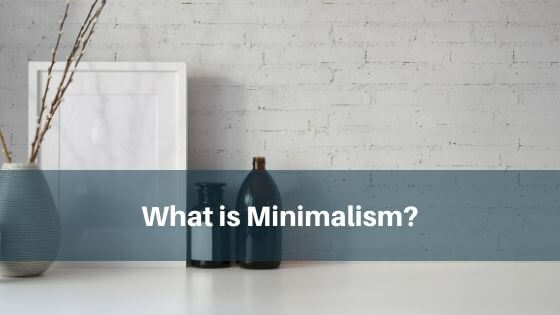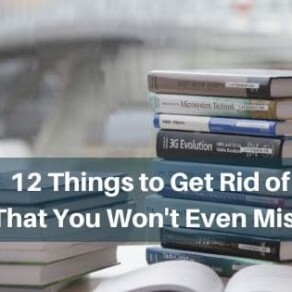
You might have heard about the minimalistic lifestyle and how it can help you live a simpler and freer life. Minimalism is nowadays all over mainstream media, and it is a concept applied across different industries such as fashion, beauty, technology, and housing, among many others.
Far from being a millennial trend, even if it might sound like a recent trend, minimalism is a concept that has been around for centuries.
But there is still a lot of confusion into what is minimalism. Some think minimalism is nothing but a fad with many restrictions that do not allow you to live a normal life, but the reality is quite different. For this reason, we put together this guide to help clarify the whole concept.
Essentially, minimalism is a lifestyle that should help you accomplish living a life with less material possessions. The advocates of minimalism tend to describe it as a way to achieve freedom. This freedom is from all the traps that the consumeristic culture we are all used to has made us fall into.
This results in freedom from being overwhelmed, from guilt and depression, for instance. Keep in mind that there is nothing wrong with “owning stuff.” The problem arises when we assign too much meaning to our possessions. This in turn might hurt our relationships, growth, or passions.
We talk about some of the benefits of minimalism here, especially as it relates to moms.
Minimalism has nothing to do with going against owning a car or a house; it is merely a philosophy that helps you make decisions with intentions and more consciously.
Let’s dig deeper into this guide to find out more about what is minimalism
What Do We Mean When We Talk About Minimalism?

Put it in simple words; minimalism is nothing else than a tool. This tool is all about helping you get rid of your life’s excesses and focus on what is important. The ultimate goal is to find real and lasting happiness, fulfillment, and freedom.
The key to minimalism is to search for happiness through life itself, not through material things as many of us are accustomed to do. By applying the principles of minimalism in your life, you’ll determine what is necessary and what is, instead, superfluous and should be eliminated from your life.
We can sum up minimalism by saying that minimalism is living intentionally. Living only with necessary things (those that support your purpose). This essentially means that you’ll have to remove all of the distractions from excess possessions and focus on what matters the most.
For how easy as this might sound, it can be tough to start. You’ll have to embrace some radical changes in your mindset, habits, and daily actions.
The Challenges Of Adopting A Minimalistic Lifestyle
Minimalism can be extremely helpful and might be a channel to achieve real happiness. However, you’ll need to overcome some challenges to become a minimalist.
First of all, you’ll need to go against modern culture’s belief that accumulating things and possessing as much as possible is the equivalent of happiness or success. Remember that you cannot purchase happiness at a department store. Instead, happiness must come from within and should be manifested through beautiful relationships, enriching experiences, and self-care.
Becoming a minimalist will also help you to slow down the pace of your life. It will free yourself to this current mania to live faster. Minimalism will help you remove all the extra and keep everything that is significant. You keep what is bringing value to your life. You also take away the need to rush from one activity to another. MInimalism invites us to slow down and to enjoy more while consuming less.
While you might think it is easy to get rid of something you don’t use, don’t be fooled. It can be harder than it seems. A rule some like to apply is to eliminate all of those objects that you haven’t used for the past 90 days. Consider if you will probably use it in the next 90 days. If the answer is no, you can safely get rid of it. Sometimes letting go of things can be hard, especially when you attached some value to them. But if you do manage to get rid of all the extra, you will be one step closer to the pursuit of freedom from stuff.
Keep in mind that “less” is not “none.” If something has a sentimental value in your life, that doesn’t mean you should be getting rid of it. However, instead of keeping a whole bunch of sentimental belongings hidden in your garage, choose those you think are significant. Then display them proudly in your home.
What Can Minimalism Do For You?
If you manage to overcome the challenges and decide to embrace minimalism or even some form of it that works for you, you’ll improve various aspects of your life. For example, minimalism can help you eliminate your discontent, value your time more, discover your purpose, and experience real freedom. Not only that, but it also allows you to grow into your better version of yourself. It allows you to live in the moment and to pursue your passions.
All this mainly results in living a happier and more purposeful life.
The Bottomline: What Is Minimalism?
While adopting a minimalist lifestyle is a great start to live happily, it is not an instant cure that will make you automatically content. You’ll get to see the results with time, by focusing on gratitude and appreciate what you already have. Some like to advertise minimalism as a way to radically change your life for the better. Minimalism will leave you not only with extra time and more happiness but also free of debts. This is one way to put it.
Although minimalism can mean different things to different people, the most common meaning of minimalism is a lifestyle focused on getting rid of things that are unnecessary. Therefore, helping us define our lives through real purpose and goals.
Minimalism is the realization that less is more. It is not some extreme behavior about not owning more than two shirts and sitting in a white room with no furniture. Minimalism is the process of clarifying what makes you happy and focusing on those things or activities. Then you simply eliminate the rest. It is as simple as that!

If you are interested in minimalism, you may also be interested in reading 5 ways to simplify your life.








Leave a Comment